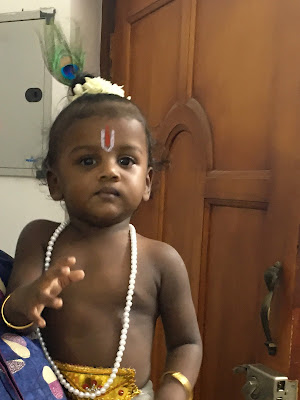The people of India are getting ready to celebrate the Diamond Jubilee of India's Independence on August 15. The Indian government is launching several plans to enthusiastically celebrate the 75th Independence Day, with one of its primary goals being to encourage people to raise the Indian flag at their homes, and workplaces, and change the photos on their social media accounts to the three-colored flag.
PM Modi requested everyone to clap (when COVID outbreak) in recognition of the selfless efforts of frontline workers, doctors, and nurses who dealt with the worst of situations; the people went on a rally, beating drums! Later, he told them to light lamps in honor of their service and the lives lost in the pandemic; people set off fireworks and celebrated Diwali! Now he pleads people to hoist flags, and the ruling party is advancing, not even leaving the sea, where they have rallies in boats and employ force to sell flags in some places.
I usually hoist the flag on Independence Day and Republic Day, showcasing my patriotism for the past 20 years, but this time the Prime Minister requested that flags be hoisted for three days in a row, from August 13–15, to commemorate the 75th anniversary of India's Independence. So far, nobody has told me to hoist the flag, and I'm doing it in my interests, so I don't need to follow this pattern.
I will stop here, I don't like to enter politics. Patriotism is something we all have in our hearts and are taught to be from childhood, as it is natural for anyone to feel a connection to their nation. Even though I don't speak Hindi, I love my country! Sorry, but the political shadow seemed to be following me. Because I am interested in both patriotism and politics, I couldn't separate the two; I am particularly drawn to the political leaders of the time who put the country ahead of their own lives and families.
My latest read of B.R. Ambedkar, who created the Indian Constitution, impressed me with his insight, and his book, Ambedkar's India, was an eye opener for me in terms of caste and politics.
Ambedkar's India gives a great perspective on caste and its root causes and why it needs to be slaughtered. Beyond that, and through various examples and concepts, he delivers worldly knowledge. I don't want to go into the subjects of the speeches of Ambedkar; the lawmaker of India has all the reasons to oppose the existence of caste and the importance of being independent; his consideration of all sorts of people and belief in constructing the constitution is remarkable to read. A must-read for Indians who anticipate changes within and outside of society. It's a book that reveals that he is not associated with any organization or set of beliefs for those who honor him for what he believed.
People may have different opinions on independence, but we cannot deny the truth that thousands of lives were lost fighting against slavery and tyranny under British rule to drive them away. In today's society, independence has many varied connotations, and most of the time it has been limited to one's function and terms and conditions.
At 75 years of independence, we are still in a position to fight for our basic rights, needs, and issues; fighting (not just physically) appears to have no end until we fight for our last breath. There is no doubt we have tremendously grown as an independent nation, and it has not been an overnight development. We must never forget those who paved the way for us and laid the foundation for our country, allowing us to be ourselves and choose our careers. Though there are still barriers to certain people's development, I think education and rationality will remove those, and everybody will breathe true freedom. Happy Independence Day!






.jpg)
